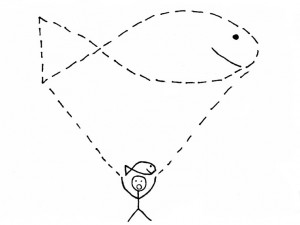I love it when authors and filmmakers claim that their works are based on true stories. It usually means that the original story went through so many different versions, there's no way to tell anymore what's true and what's false.
Fur trapper Hugh Glass had a string of bad luck in 1823 when, in the middle of an expedition, he was mauled by a grizzly and left for dead by his compatriots. Despite unspeakable injuries, he manged to travel an amazing distance to track down the people who abandoned him, managing rather peacefully to get his gun back. This story was retold time and time again until Michael Punke came out with The Revenant, tilting the narrative more in the way of revenge, and by the time Alejandro González Iñárritu got his hands on it, the legend became a whirlwind epic of violence and terrible vengeance.
In 1836, nine-year-old Cynthia Ann Parker was kidnapped by Comanche warriors. She lived with them for 24 years, marrying a war chief and having three children, only to be stolen back against her will by Texas Rangers, later dying of grief in 1871. Alan Le May used this and many other abduction stories to write The Searchers, which was less about the woman being abducted and more about the obsessed men tracking her down. In turn, John Ford got his hands on it and pumped out one of John Wayne's most beloved films.
And sometimes you do whatever you want with nothing at all. The Coen brothers said their movie Fargo was based on a true story. They lied. They just wanted to make the movie feel like a true-to-life story, and oddly enough, they were just honest enough about lying that nobody seemed to mind. Some people can get away with anything.
The lesson is to never trust anything that you or anyone else sees, hears, touches, tastes, smells, feels or conceives of. You think, you are, that's it.



Add a comment to: Based On a True Story